|
Buddhist monasticism is flexible. Although it is correct to assume that it is usually necessary for an individual to undergo a period of isolatory training (to establish and stabilise the realisation of the void) - it is also true that compassionate (Bodhisattva) activity must also be pursued throughout the myriad conditions that define worldly existence. This is true of all Buddhist traditions - as even the Bhikkhus of the Theravada School must "walk" (in a self-aware manner) through the surrounding (lay) villages - begging for food on a daily basis. Living a hermitic or cloistered existence is a means to an end and not an end in itself. Of course, this period may be repeated more than once and last any length of time. When entering different situations - the Bodhisattva does not lose sight of the realised void regardless of the external conditions experienced. The Sixth Patriarch (Hui Neng) spent around 15 years living with bandits and barbarians in the hills - retaining a vegetarian diet - even though he was not yet formally ordained in the Sangha. Within China, the Mahayana Bhikshu must take the hundreds of Vinaya Discipline Vows as well as the parallel Bodhisattva Vows (the former requires complete celibacy whilst the latter requires moral discipline but not celibacy). Anyone can be a "Bodhisattva" - whilst a formal Buddhist monastic must adhere to the discipline of the Vinaya Discipline. A lay Buddhist person also adheres to the Vinaya Discipline - but only upholds the first Five, Eight or Ten vows, etc. Vimalakirti is an example of an Enlightened Layperson whose wisdom was complete and superior to those who were still wrapped in robes and sat at the foot of a tree. In the Mahasiddhi stories preserved within the Tanrayana tradition - the realisation of the empty mind ground (or all-embracing void) renders the dichotomy between "ordained" and "laity" redundant. The Chinese-language Vinaya Discipline contains a clause which allows, under certain conditions, for an individual to self-perform an "Emergency" ordination. This is the case if the individual lives in isolation and has no access to the ordained Sangha or any other Buddhist Masters, etc. The idea is that should such expertise become available - then the ordination should be made official. However, the Vinaya Disciple in China states that a member of the ordained Sangha is defined in two-ways: 1) An individual who has taken both the Vinaya and Bodhisattva Vows - and has successfully completed all the required training therein. 2) Anyone who has realised "emptiness". Of course, in China all Buddhists - whether lay or ordained - are members of the (general) Sangha. The (general) Sangha, however, is led by the "ordained" Sangha. As lay-people (men, women, and children) can realise "emptiness" (enlightenment) - such an acommplished individual transitions (regardless of circustance) into the "ordained" Sangha. This is true even if such a person has never taken the Vinaya or Bodhisattva Vows - regardless of their lifestyle or position within society. Such an individual can be given a special permission to wear a robe in their daily lives - but these individuals do not have to agree with this. Realising "emptiness" is the key to this transformative process. Emptiness can be realised during seated meditation, during physical labour (or exercise), or during an enlightened dialogue with a Master. The first level is the "emptiness" realised when the mind is first "stilled". This "emptiness" is limited to just the interior of the head - but the ridge-pole of habitual ignorance has been permanently broken (this is the enlightenment of the Hinayana) - and is accompanied by a sense of tranquillity and bliss. This situstion (sat atop the hundred-foot pole) must be left behind. Through further training, the "bottom drops out the barrel" - and the perception of the mind expands throughout the ten directions. Emptiness embraces the mind, body, the surrounding environment - and all things within it.
0 Comments
Richard Hunn stated that the Five Ranks of the Caodong School are very sophisticated and quite often difficult to understand. In essence the Caodong Ch’an Method is a condensing of the teachings found within the Lankavatara Sutra. Without possessing a copy of this Sutra (which Bodhidharma brought to China in 520 CE) – the “Method” can be easily learned, preserved, and transmitted by word of mouth and through awe-inspiring deportment (hence the “odd” behaviour of many Ch’an Masters and their Disciples). Within ancient China, perhaps around only 10% of the population could read or write. Such men (normally not women) were almost always Confucian Scholar-Officials (or their students). It is also true that some Ch’an Masters were also Confucian Scholars – as were Master Dong and Master Cao – who founded the Caodong School of Ch’an (the two names are reversed to express a better rhythm within Chinese-language speech patterns). Both these men understood the “Yijing” (Change Classic or “I Ching”) and were conversant in the Trigram and Hexagram ideology. This is why the Five Ranks are premised upon two Trigrams and three Hexagrams. The internal logic of how these lines “move” from one structure into another - is the underlying reasoning that serves as the foundation for the Caodong School. The minutiae of this doctrine is not the purpose of this essay (as I have published a paper on this elsewhere). Within genuine Caodong lineages it is taught that the Caodong Five Ranks can be taught as “Three” levels of realisation or attainment: 1) Guest (Form) – ordinary deluded mind within which the “Void” is not known. (Rank 1) 2) Host (Void) – the “Void” is known to exist and a method is applied to locate and realise its presence. (Rank 2) 3) Host-in-Host (Void-Form Integration) – the “Void” is fully realised, aligned, and integrated with the “Form”. (Rank 3, 4 & 5) The problem with “lists” is that they are often dry and one-dimensional. What does the above explanation mean in practical reality? The following is how this path is explained from the perspective of experiencer: a) When the mind is looked into – all that is seen - is the swirling chaos of delusion (Form). b) By applying the Hua Tou or Gongan Method – this confusion ceases, and an “empty” mind is attained. However, this “emptiness” is not permanent and must be continuously accessed through seated meditation to experience it more fully. Furthermore, even when stabilised – this experience of “emptiness” is limited only to the inside of the head. This is “Relative” enlightenment that should not be mistaken for “Full” enlightenment. Despite its limitation, nevertheless, such a realised state is far beyond the ordinary. c) When the “empty” mind naturally “expands” it encompass and reflects the physical body and all things within environment (the “Mirror Samadhi”). This is the attainment of “Full” enlightenment - and the realisation of the “turning about” as described in the Lankavatara Sutra. Although no further karma is produced and given that a great amount of past karma has been dissolved, the very presence of a living physical body still attracts karmic debts that may need paying. Further training is required to clear the surface mind of residual “klesa” (delusion) and to purify behavioural responses. Traditionally, the Chinese Ch’an Master refused to speak about the post-enlightenment position.
There is a significant difference between the falling into the state of ‘dull’ nothingness (as warned against by Master Xu Yun) and the realisation of genuine ‘emptiness’ within traditional Chinese Ch’an training. The difference must be properly understood if progression is to be made. a) ‘Nothingness’ (Pali 'Akincanna’) - or ‘No-Something-Ness' - is the falling into ‘dull’ nothingness often mistaken as the realisation of genuine ‘emptiness’ and ‘enlightenment’ - which is still ‘post-thought’ in manifestation. b) The realisation of genuine ‘Emptiness’ (Pali ‘Sunnata’) or relative enlightenment is ‘pre-thought’ - as the empty mind ground is what is perceived when no thoughts arise. What does this mean? Dull nothingness (akincanna) is a thought form with a non-descript content. In other words, a thought is generated which is defined by the usual boundaries and parameters that constitute the average structured ‘thought’ form - but the meditator misunderstands this ‘non-descript’ content and mistakenly grasps it as being the empty mind ground. The trap here is that a manifest ‘thought’ (and stream of thought) is masquerading as the psychic fabric from which all structured thought arises – and which pre-exists all thought. This state is mistaken as complete and perfect enlightenment and those trapped within it start misleading others down the wrong path. By way of contrast, the state of genuine ‘emptiness’ (sunnata) is realised when all thought generation ‘ceases’ at its source – and the empty mind ground manifests and becomes apparent as its presence is no longer obscured by the continuous stream of thought which normally traverses the surface mind. No thoughts arise whatsoever and so the empty mind ground becomes perceivable. As there is a sense of ‘constriction’ - this genuine state of ‘emptiness’ realisation is termed ‘Sitting atop a hundred-foot pole’ (which is symbolic of Hinayana enlightenment), as it is accompanied by a sense of ‘peace’ and ‘tranquillity’ - but a further stage of training is required.
Dear Gee
What is interesting is that after decades of effective inner and outer martial arts practice, I have arrived at a profound 'stable' state of mind, body and spirit (whatever that is). This journey has traversed many inner and outer levels or states of being. Mostly, this has included a logical approach to physical training motivated by 'doubt' a) in the process itself, and b) in my ability to keep-up the practice or c) to carry-out the prescribed practice correctly. This 'doubt' was inward whilst the physical 'outer' Chinese martial arts techniques were superb and highly effective. This 'doubt' (which ceased to function about 14-years-ago in c. 2007) acted like a force of magnetism drawing my 'uncertain' inner-being toward to the solid and stable outer-structure of the martial arts techniques and how they might be used in self-defence (function) and mind and body health and fitness (longevity). There is now a great awareness. A great all-embracing sense of psychological being that appears to be united with mind, body and environment. This unity I term 'spiritual' because all this seems 'transcendent'. Of course, whilst being driven on by the inner doubt to practice physical martial arts (as a form of 'armouring' against external attack), I also committed myself to intense Ch'an meditative practice as a means to 'uproot' this doubt which all motivating throughout my entire life to 'take action' in many different arenas - it also contained an element of 'weakness'. As I interpreted this 'weaknesses' as a major problem that a) held me back in a state of fearful 'non-action', or b) sabotaged physical actions so as to render all exertion completely pointless! The mind 'cleared' and 'expanded' - it became all-embracing so that the body stopped appearing to be 'outside' of it and took its place entirely within psychological awareness. Although I had my initial experiences of the realisation of a 'still' and 'empty' mind with its awareness expanding and embracing all things around 1990 - it took another 15-years for this experience to settle-down (2005), and about another two or three years for all vestiges of 'doubt' to completely dissolve (2007/8). What did happen around 1990, however, is that my physical use of outer Chinese martial arts technique deepened, expanded and matured, and since the time of 'teaching' in my own right (as opposed to 'training' under a teacher) - I have never lost a fight in the training hall. (Around a year before this experience, I was following a strict Chinese (Mahayana) Buddhist 'monastic' regime and sitting in meditation for hours a day practicing the hua tou 'Who is hearing?' Suddenly, whilst sitting in my 'cell' and without warning, my mind 'ceased to move' becomingly utterly and completely 'still'. This was accompanied by deep sense of permanent ecstasy! My Chinese teachers correctly taught me with 'silence' - whilst my Western teacher Richard Hunn (1949-2006) - my Western Ch'an teacher - correctly taught me with words! Ironically, he drew my attention to the authentic Chinese Ch'an texts. 'Neither be attached to the (realised) inner void - nor hindered by (the 'external') hindering phenomena'. It was deep within the 'silence' of my Chinese Ch'an Masters (including Chan Tin Sang [1924-1993] that I discovered the poignant meaning of Richard Hunn's spiritually 'vibrant' words. This is how I knew that Richard Hunn was correct in his understanding. Later, this dual instruction [into non-duality] led to the next shift in perspective This occurred a year later after a further period of intense practice, and was a product of a complete change or 'turning about' [see the 'Lankavatara Sutra'] at the deepest essence of the mind. It was such a profound and important 'first principle' that I nearly omitted it from the list of all the important events! I was once meditating sat on the ground outside 'returning' all sensory data 'back to its 'empty ground' essence - when a cool and refreshing Summer's freeze blew gently across my face. Suddenly, my mind instantaneously 'turned the right way around' immediately abandoning its previous 'inverted' functionality and appeared to 'expand', assume an 'all-embracing' position of being, whilst this 'new awareness' thoroughly permeated the physical-body and penetrated the physical universe throughout the past, present, and future! This permanent shift in psychological and physical manifestation changed 'me' from the DNA-chemical foundation upward and influenced all the views and opinions I now hold!) This includes not only transforming the experience of sparring with students (which is now unified experience premised upon wisdom, loving kindness and compassion) - but also manifested within the otherwise 'brutal' realm of 'honour fights' whereby unknown and unfamiliar individuals suddenly turn-up at my training hall and (disrespectfully) ask to spar! They wish to gain fame and fortune through 'out of control' violence which involves (for them) the 'beating' and 'exposing' a local (Chinese) gongfu teacher! How did this happen? I think whereas my opponents were still motivated by a deep and profound sense of 'doubt' (often involving a profound 'self-hatred') - I no longer experienced this 'doubt' which 'divides' human-beings during combat. Doubt by this time in my life had become nothing more than a profound sense of enhanced 'awareness' full of compassion and understanding. This is all held in place by a physical (martial) ability that can use 'gentleness' just as easily as 'harshness' to 'control' or 'regulate' physical interactions. Signed: Adrian Chan-Wyles [陳恒豫 - Chan Heng Yu] (22.11.2021) - '釋大道' (Shi Da Dao) Witnessed and Authenticated by Yau, Gee-Cheuk [邱芷芍] (22.11.2021) - 'Gee Wyles' - Wife of Adrian Chan-Wyles Dear Ben My personal experience (for what it is worth), appears to suggest to me that the enlightened state can (and is) realised by all and sundry - irrespective of circumstance - even though I fully acknowledge that its attainment is 'rare' even for those who are actively seeking it. When I was on Mount Athos, for instance, (probably around 2001), I met some remarkable Orthodox Christian monks whose ideas were very similar with regards to inner attainment. I also appreciate the beautiful icons of Jesus Christ depicted as an Asian man! In the West, the Christian monastics are the people who 'look within' to a surprising degree - but due to humility - their attainments are virtually unknown. Of course, this is very different to what might be called the 'popular Church' which is only concerned with crass individuality, recruitment (through conversion) and the amassing of wealth! These are the missionaries who did so much damage in Asia in times gone by. I have no time for this type of 'racist' spirituality - but I know that this is not the genuine Christianity and does not represents the ordinary Christian people who are very 'humble' and very 'compassionate'. Where Judaism has assisted me is mostly through superb secular academics who have happened to be of a Jewish ethnicity. I have also lived in Hindu and Muslim families and experienced tremendous caring and compassion - not being asked for a penny even after a year of hospitality! In all of this I do not exclude those who see themselves as 'atheists' (other than 'fascists') - as reality can emerge at the strangest of times. I was once walking who a dense jungle in Sri Lanka (in late 1996) with a bare-footed Buddhist monk. Suddenly, a huge hooded-snake rose up from the ground and was about three or four foot off the ground. It gently looked at me - swaying left and right. The Bhikkhu did not break his stride but walked toward the snake - which slithered up his body and rested its head on his right shoulder! The Bhikkhu then asked me to 'touch' the snake's head - which I did in a type of 'haze'! The snake then dropped to the ground and retraced its slither back into the undergrowth. The monk said he has met this snake for nearly 20-years years and almost in the same spot! The snake wanted to make sure that I understood that this was his path and that the jungle was not 'safe' for inexperienced strangers!
‘Drdhamati, even while dwelling in Surangama Samadhi, I am in the trissahasramahasahasralokadhatu and, eventually, in Jambudvipa, I practice, as the case may be, the perfection of (paramita) of giving (dana), morality (sila), patience (ksanti), vigour (virya), absorptive meditation (dhyana) or wisdom (prajna), /In Jambudvipa I am, as the case may be, a recluse with the five superknowledges (pancabhijnarsi), or again, a layman householder (grhastha) or a monk (pravrajita).’ Buddha - Surangama Samadhi Sutra (Lamotte – 1998 – Page 197) We all experience birth and we all experience death. These are two guaranteed events in our lives that apply equally to everyone regardless of our genetic inheritance or the life circumstance we are born into. Death can be further subdivided into a) natural and b) unnatural. Natural death to that shutting-down of the biological life-sustaining processes at the end of a long life, or at anytime on life's journey that does not originate from accident, illness or violence, etc. A 27-year-old, for instance, can pass away quite peacefully in their sleep simply because their particular genetic clock decides to 'switch' their heart off. This may be to do with the past evolution of human-beings when our distant ancestors did not live much past twenty. An 'unnatural' death is a demise due accident, illness or violence. This is when an individual's life-span is cut-short due to a malfunctioning body (as in any number of genetic illnesses), or suffers the destruction of organs due to an accident. Violence committed by other humans can often account for many such deaths such as through pointless attacks within civil society, murder, acts of terrorism and acts of war. This category can be extended to include economic violence where people are deprived of work, income, food, clothing, education and medical assistance, etc, due to an ideology that privileges a few over the many. This also includes the the concept of 'psychological' violence which can serve as the base cause of all types of mental illnesses and later aberrant actions premised upon their numerous cognitive dysfunctions. Buddhist philosophy adds another layer to all this in the form of individual and collective karma. The Buddha stated that not everything we personally experience and suffer has a root cause in volitional karma. Cancer, for instance, can be the product of a poor lifestyle and deficient choices in diet, activity and social setting, etc, but it can also be the product of the simple misfunctioning of a body cell with no input whatsoever from volitional karma. In the latter case, Cancer is a 'naturally' unfolding process. This is like the changing of the seasons or the rising of the sun, not much can be done about it at the individual level other than to 'observe'. Furthermore, at the point of full enlightenment, the Buddha states that the ridge pole of ignorance is forever broken and that the concept of karma (and notion of rebirth) comes to an end. Following all the quarantine and cleanliness rules in this current climate will help increase the chances of us as individuals not contracting, passing on or possibly dying from Covid19. From a Buddhist perspective, it is that simple.
The Chinese Ch’an School is said to have been brought to China from India in the 6th century CE by the Indian Buddhist monk – Bodhidharma. The Scripture associated with his transmission was the Lankavatara Sutra. Although associated with the Yogacara School today within popular Buddhism, a debate exists as to its actual place within Buddhist development history, with researchers such as Florin Giripescu Sutton stating that the structure of this Sutra is more evident of a Hinayana-Mahayana crossover, rather than being comprised of a purely ‘idealistic’ arrangement. (See: FG Sutton’s book entitled ‘Existence and Enlightenment in the Lankavatara-sutra'). From my training within the Chinese Ch’an School, I believe FG Sutton’s interpretation is correct. The Chinese Ch’an School is never one-sided in its interpretation of reality, and would not accept a purely ‘material’, or ‘idealistic’ interpretation of reality. However, the Chinese Ch’an School does accept the concept of an ‘integration’ of a (realised) reality that is the perfect synthesis of ‘form’ (matter) and ‘void’ (empty space). Of course, enlightenment involves the ‘turning about’ (Paravritti) of the deepest aspect of the human-mind.
The Standard Sanskrit Dictionary defines the term ‘Paravritti’ (परावृत्ति) in the following ways: barter, rebounding, revolving, change, recoiling, turning back or round, exchange, restoration of property, interchange, returning, not taking effect, reversion of a sentence or judgement and turning about. Within the context of Mahayana Buddhist Sanskrit (as used in the Lankavatara Sutra), the term Paravritti’ (परावृत्ति) means: ‘change’, ‘turning around’, ‘returning’ and ‘turning about’. It implies the permanent ‘turning about’ (as a ‘realised’ achievement of enlightenment) that occurs in the deepest (alaya-vijnana) level of the mind. The ‘deluded’ mind – which is the mind that first embarks upon the path of enlightenment – is ‘inverted’ by nature and definition of the Buddha. To rid the mind of this ‘suffering-inducing’ inversion of mind, an individual must participate in the practice of meditation as a method of effective self-cultivation. Within the Chinese Ch’an School this process involves the use of gong-an contemplation and hua tou investigation. When the inner potential is suitably strengthened, there is a ‘breakthrough’ so that the ridgepole of ignorance is broken, and the inverted-mind is rectified into the non-inverted mind of complete enlightenment. A very good definition of ‘turning about’ (Paravritti) is as follows: ‘Discrimination not rising, there is a turning-back (parāvṛtti), and there is no dependence on anything … When there is a revulsion (parāvṛtti) from discrimination, one is removed from death and destruction; … " (* 8) Gotra (眞性) according to T'ang. (* 9) Parāvṛtti, turning-over, or turning-up, or turning-back’ This ‘turning about’ equates to the third position of the Cao Dong Five Ranks – where the ridge-pole if ignorance is finally broken and a ‘still’ and ‘peaceful’ state of mind is attained. Although only the ‘relative’ (or ‘Hinayana’) position of enlightenment, nevertheless, it is already ‘beyond the worldly’ - because the dualism and discrimination premised upon on it - no longer arises in the mind. There is a ‘revulsion’ toward ALL discrimination - which is the essence (and ‘cause’) of delusion in the mind and suffering in the body and environment. From here, Mahayana enlightenment is achieved through further training (as the Cao Dong of the Five Ranks positions of four and five are traversed). Within the written Chinese language, the Sanskrit term ‘परावृत्ति’ (Paravritti) is represented by the two ideograms ‘反射’ (Fan She). When read together, the concept of a ‘reflection’ (as from a ‘mirror’) is conveyed. Within the Surangama Sutra, the perfectly entitled mind is described as an infinite mirror ‘reflecting’ the entirety of material reality! Through this permanent (and ‘apparent’) reflection, the ‘inverted’ mind is remedied and human perception assumes the ‘correct’ or ‘enlightened’ orientation. (When describing the state of enlightenment to the unenlightened – the analogy of a ‘reflecting mirror’ is invariably used). The ideogram ‘反’ (fan3) carries the meaning of ‘reflect’, ‘repeat’ and ‘return’, etc, whereas the ideogram ‘射’ (she4) means ‘emit’, ‘shoot’ (an arrow) and ‘accurately project’, etc. This means that the Chinese interpretation of the Sanskrit term ‘Paravritti’ means to ‘turn back (i.e. to ‘reflect’) with a perfect accuracy’. These are characteristics of the perfectly enlightened mind within the Chinese Ch’an position. Indian Sanskrit Reference: http://spokensanskrit.org/index.php?mode=3&tran_input=परावृत्ति&script=hk&anz=100&direct=se https://www.wisdomlib.org/definition/paravritti The paradox of the Chinese Ch’an tradition is that it expects lay-people and monastics alike to realise full enlightenment - ‘here and now’. What does this mean? Regardless of the circumstances of an individual’s life, the insight capacity of the mind must be turned inward with such a high degree of focus and precision, that perception is permanently ‘altered’ so to ‘see’ and ‘understand’ more than what was understood before. Being a Buddhist monastic is no guarantee of success in realising enlightenment, just as being a lay-person should be no barrier. Individuals will learn at their own pace and in their own way, with all kinds of psychological and physiological factors coming into play (traditionally referred to as ‘personal karma’). The ‘language of the uncreate’ is unique to Chinese Ch’an Buddhism and uses language in such a way that does not allow the habitual ‘dualism’ of conventional communication to come into play during an ‘enlightening’ interaction or dialogue. The convention of ‘dualism’ preserves delusive states of mind, and prevents clarity of insight from developing. This is why Ch’an masters (in ancient times) developed this mode of non-communication, although when Master Xu Yun (1840-1959) taught during the 19th and 20th centuries, he often used a modern example of logic and reason to describe the history, method and purpose of the Ch’an School. Indeed, whilst encouraging his disciples to fully penetrate (and realise) the empty mind-ground, he would often warn against the cultural habit of many people attending Ch’an Week Retreats to descend into ‘mystical’, or ‘nonsensical’ states of mind, each of which was nowhere near the authentic realisation of the empty mind ground! Uttering nonsense about ancient masters, does go much beyond the nonsense being uttered! However, once the empty mind ground is realised, then every word spoken by the Buddha is understood exactly and clearly, as is every odd action and utterances of the ancient Ch’an masters!
What is the point of Ch’an (or Buddhist) enlightenment in the modern age? Many, if not all of the world’s great scientific breakthroughs have been made by human minds that have not undergone the Buddhist training, and which have not uprooted greed, hatred or delusion, transcended duality or perceived the empty mind ground. My personal opinion is that Buddhist developmental methodology is not a religion, despite the fact that many manifestations of Buddhism have assumed the garb of religiosity. Buddhism is not anti-science as the theology of other religions is often presented, and yet the Buddha and his disciples (although many of them ‘learned’), could not read or write. Many are surprised by this, but at no point in any of the 5000 plus Buddhist texts does the Buddha mention the modern notion of literacy, despite the Buddha’s thought processes appearing to be very modern despite manifesting at sometime between 2,500-3000 years ago in ancient India. As the concept of modern science has now mainstreamed in the world, together with literacy being the preferred norm, the Buddha’s path no longer seems that special or important. An effective scientist does not need to meditate or gain enlightenment to be an effective servant of humanity, and profoundly assist in its development and welfare. On the other hand, I have read Professors at Oxford University state that in their opinion, the Buddha was the first ‘modern’ thinker at a time when logical thinking was thin on the ground, with Carl Jung opining that the Buddha appeared, through a sheer act of will, to think ‘outside’ the era within which he existed. This on its own is an extraordinary feat, if it is accepted that he was the world’s first modern thinker in the true sense. In today’s world, being intellectually astute is inherently linked to simultaneously possessing a high degree of literacy and coming from an economically rich background, and yet the Buddha had none of these things as a spiritual-seeker. Indeed, today he would be considered one of the homeless community and what he had to say would be deliberately excluded from what is considered the general (and valid) discourse of mainstream existence. It is perhaps ironic that most that refer to themselves as ‘Buddhist’ in the contemporary West are of the privileged economic class that the Buddha rejected. The enlightened Buddha combines poverty, homelessness and unemployment with selflessness, non-attachment and sublime wisdom. What is interesting is that if a person were to live in a peaceful forest or on top of a hill far from the cares of the ordinary world, then the Dharma certainly does prove to be a ‘way out’ of ordinary suffering (by following the Vinaya Discipline). However, within the Ch’an School (and the Vimalakirti Nirdesa Sutra), the Buddha explains the path of the enlightened lay-person. Such a person lives amongst the pleasures and pains of the world and remains non-attached to arising and falling thoughts (and emotions), and is unmoved by words of praise or blame. The empty nature of material reality is always perceived as underlying the continuous play of phenomena. Although a busy street or a quiet mountain top may differ in outward appearances, they both share exactly the same empty mind ground, and other than the practicalities of different manifestations, no real difference can be discerned. Understanding this is the further training required after enlightenment. From my own perspective, training as a young man directed, strengthened and freed the full intellectual and wisdom capacities inherent in my mind, whilst allowing me a completely different way of relating to and controlling my physical body. This led to tremendous academic success and the mastery of our family martial arts system.
Demystifying the enlightening experience is not a trivialisation of this experience, on the contrary, it is a clarification. As an exercise in logical thinking it also seeks to uproot and exclude the pretensions associated with pseudo-enlightenment and the exploitation contained therein. Is enlightenment a real experience? Yes – in my experience it is – but this statement should not be taken as a support for religion or religious dogma of any sort. It is a subjective experience which marks a radical shift in how an individual consciously perceives and interacts a) with consciousness itself, b) their physical body, and c) the material environment (and everything within it). I used the hua tou method for years (1989-1992) in an intense and dedicated manner, whilst living in relative isolation and receiving instruction from numerous individuals (with the guidance of Richard Hunn proving decisive). What happened? Through seated meditation throughout the day and night, I looked for certainty in a mind that was forever moving. My root consciousness would grasp this fleeting state, or that fleeting state which temporarily passed before it as being ‘the one’, as I had no real knowledge of what I was seeking. The act of regular meditation pursued through a highly regulated and disciplined outer lifestyle granted me security and stability in the physical world, so that I could direct all my available energy into the interior of my being. Endless thoughts and feelings traversed the surface of my mind and led to all kinds of vivid imaginations, usually as opposite and equal responses to the Vinaya Rules. (For instance, a complete lack of sexual activity in word, deed ad thought, led, for a time, to an intensification of thoughts and feelings premised upon ‘desire’). Initially, the surface mind would ‘quiet’ and a dull emptiness would appear – similar to a mirror made dull my smears and layers of still dust. On other occasions, this admixture of filth would manically swirl around. I could sense the true void behind this interchanging activity, but could not quite see through to it. (Later, I learned that this is stages ‘1’ and ‘2’ of the Caodong School methodology). After two years of meditation, and having my words ‘turned’ by Richard Hunn, a major (and permanent) breakthrough occurred. Whereas my words of enquiry were invariably jumping from one aspect of externality to another, Richard Hunn would expertly switch the emphasis away from the external (objective) to which I was attached – back toward the ‘root’ of the word-thought nexus, and into the empty mind ground. He performed this duty for me continuously and without fail. There was no pretence, no attachment to the external world – just Ch’an function returning to principle.
Eventually, after being shown the empty mind ground enough times, my mind-state radically shifted. A deep and profound ‘emptiness’ manifested that was nothing but complete ‘bliss’ to experience – like a continuous sexual orgasm throughout the mind and body, but completely divorced from the sexual function. Richard Hunn explained this as stage 3 of the Caodong School – further describing this awareness as ‘relative enlightenment’. The temptation was to stay in this magnificent state and never come out of it (once described as ‘samadhi suicide’). I could imagine living in a forest or on top of a hill, and permanently experiencing this ‘bliss’ for as long as my physical body existed. However, Richard Hunn warned me against this, and stated that the journey was not yet over. Being attached to this state of ‘oneness’ and ‘bliss’ was like being detained on a journey by a deceptive gold chain. This was also the stage of being sat atop of a hundred-foot pole – the key now was to ‘jump off’ - but how to do this? Although my mind had ‘cleared’, I still subtly mistook the now calm (and reflecting) surface mind (guest), as being the profoundly empty mind’s eye (host) – without knowing at the time that I was doing this. Stages ‘4’ and ‘5’ of the Caodong School explained this, but it was a difficult teaching to understand. Richard Hunn explained that I could meditate or not, and that he was saying nothing more about any of this. I decided to continue to meditate and to read the sutras (particularly the ample Ch’an literature translated by Charles Luk), as previously I had not read a word for a few years. When I first read a Buddhist text (the first of any text for two years), it was like the words were tumbling from mind, through my eyes and onto the paper... Surely an indication of what the Lankavatara Sutra terms the ‘turning about’ in the deepest recesses of the mind. This is where genuine Ch’an literature (and recorded dialogue) come into play. These enlightened (I.e. ‘non-inverted’) utterances orientate the mind and clear away confusion (although for the ego the opposite effect is observed). I altered my practice to periods of intense Ch’an meditation interspersed with elongated periods of worldly activity, as this entire affair appeared to turn on how ‘stillness’ and ‘activity’ was understood and undertaken. Richard Hunn simply advised that my ‘virya’ will carry me through. My mind in my head remained ‘still’ in the face of the ‘moving’ external world. For about a year I endeavoured to ‘balance’ this reality in various ways (the ‘not one’ of the ‘4th’ Caodong stage), always seeking the ‘not two’ (‘5th’ stage of the Caodong School). This is how it seemed to me then, with Richard Hunn stating that no genuine Ch’an master would say anything beyond the ‘3rd’ Caodong stage. Try as I might, I could not get beyond the duality of my ‘empty’ mind and the ‘moving’ world. I decided that the key lay in finding the ‘emptiness’ within the ‘empty’ mind. All of this was the world viewed from the ‘3rd’ stage of the Caodong School - looking inward and looking outward – there was the basic duality that I could not transcend. In the meantime, my hua tou practice matured. Whereas I had ruthlessly pursued ‘Who is hearing?’ - using the hearing capacity to control, organise and transcend the stream of thoughts in my mind, I now used this practice to simultaneously ‘return’ ALL my six senses (simultaneously) to the empty mind ground – although I always remained just this side of a major breakthrough. I began to see that ‘subject’ and ‘object’, although expediently disconnected, where in fact (and in some way) intrinsically connected. There was ‘oneness’ and there was ‘twoness’ all at once – but Richard Hunn (out of his compassionate wisdom) would not affirm or deny any validity to my observations – an I was always thrown back upon my own devices. Since my initial realisation there had been a tension of sorts. This provided the inner power to continue the journey. An ‘inner potential’ built-up through right intention, and correct meditational effort. One day, I was sat meditating out-doors, as I found the open air conducive to expanding the mind’s awareness. Whilst ‘returning’ all sensation to the empty mind ground, a gentle breeze blew across my face and front of my body. At this exact moment (around August, 1992), my perception finally altered and I adopted the ‘host’ and ‘host in host’ position – an integration of stages ‘4’ and 5’ of the Caodong School. My awareness, which had been confined only to my head, suddenly ‘expanded’ to encompass the entire environment. The awareness penetrated through my body and united the sense organs with sensory stimulus and sense objects into a profound (and empty) oneness and was vibrant and diverse. Reality was both ‘empty’ and yet ‘full’, and there was no contradiction to this understanding. My mind finally ‘turned’ so that I now perceived the world directly through the mind’s eye (host), rather than through its reflection in the surface mind (guest). Around 8 years later (in summer, 2000), Richard Hunn confirmed this experience as being genuine and correct (although in the years between 1992 and 2000 I had travelled to Hong Kong and Mainland China to visit relatives and meet various Ch’an monastics and lay practitioners, all of whom issued the appropriate recognition). As the ‘guest’ became the enlightened function of the ‘host’, the delusive quality was transcended so that the ‘guest’ became the ‘host’, or reality was now comprised of ‘host in host’. The ‘form’ and ‘void’ were clearly distinguishable (hence ‘not one’), and yet the ‘form’ and ‘void’ exist simultaneously integrated without contradiction, boundary or limit (hence ‘not one’). Everything continued as it was before (with Richard Hunn becoming my friend), and yet my mind was permanently (and radically) altered. |
Archives
March 2024
Categories
All
|
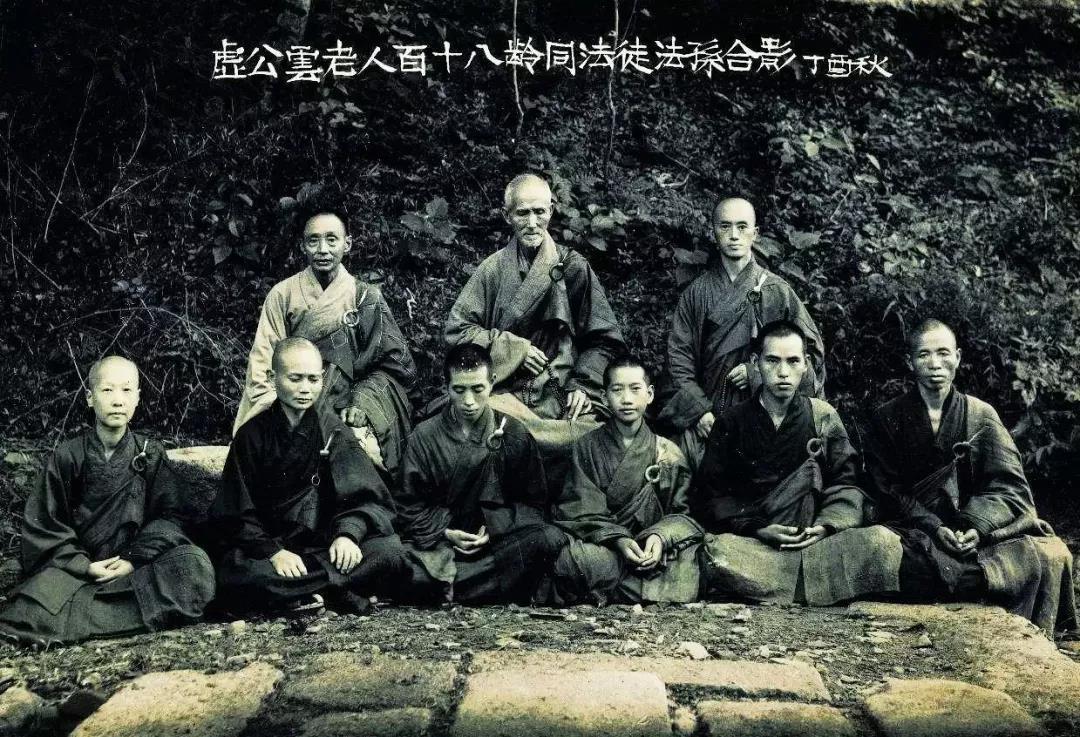
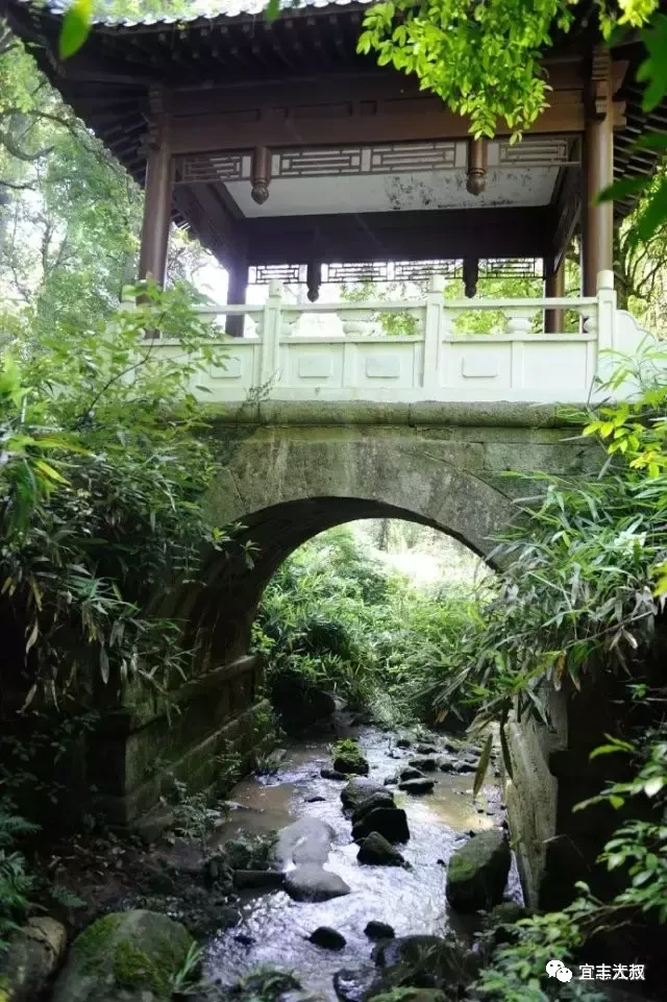
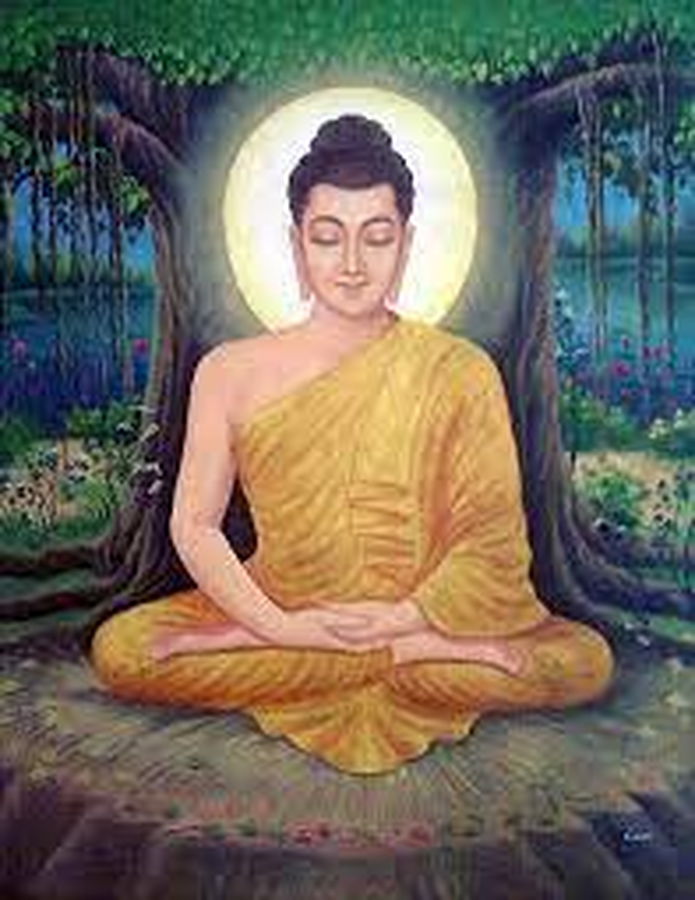
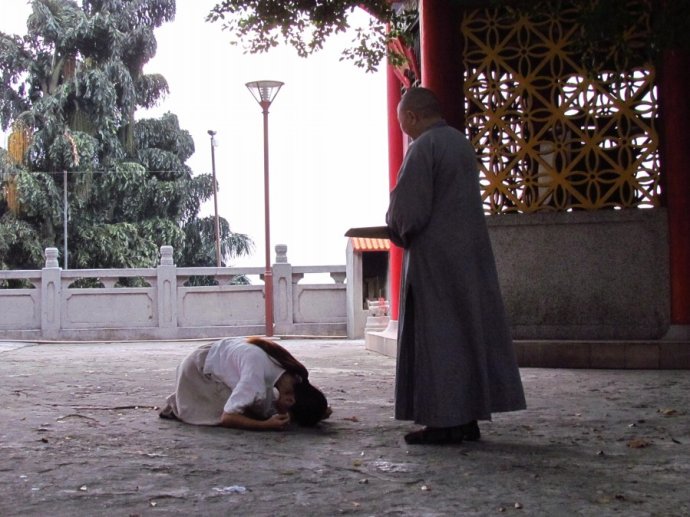
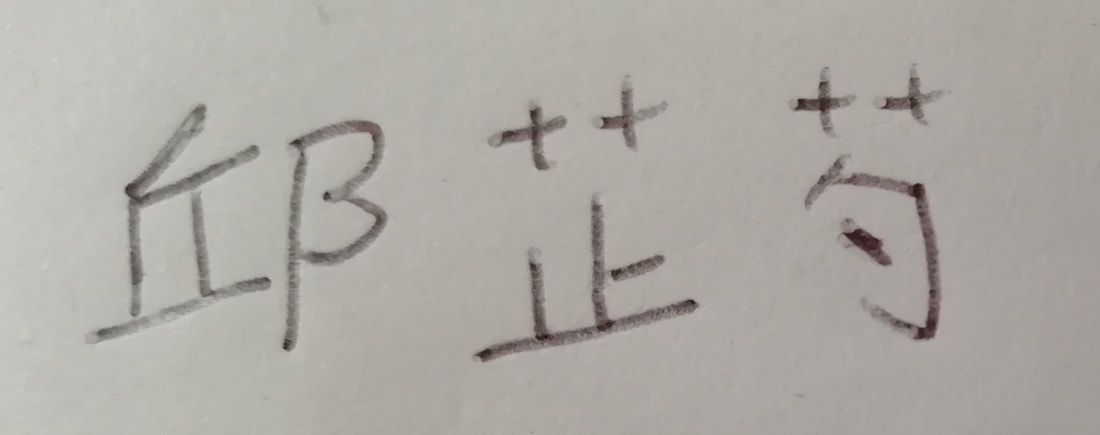

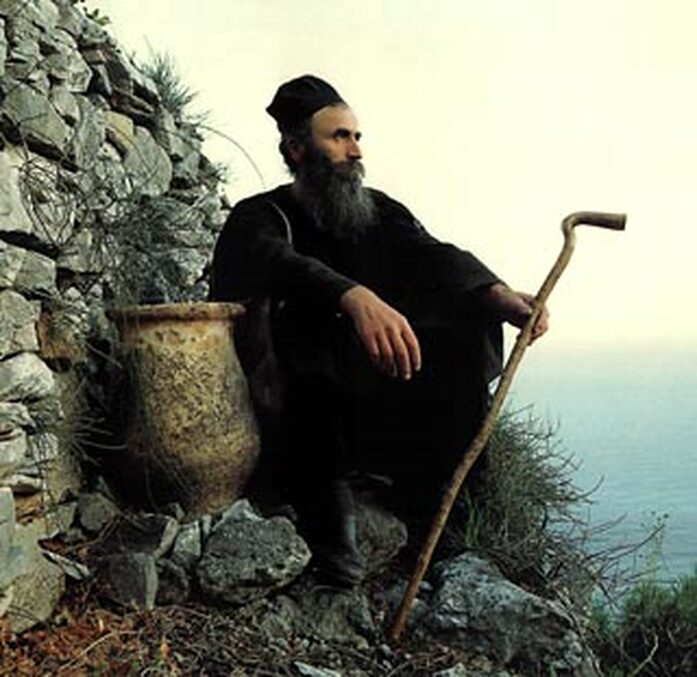

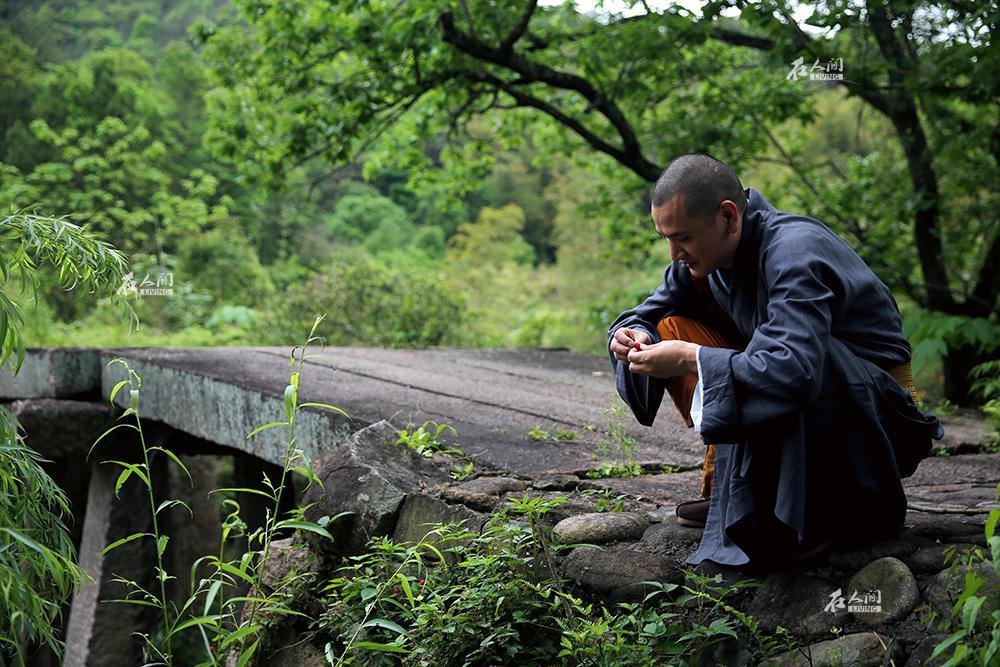
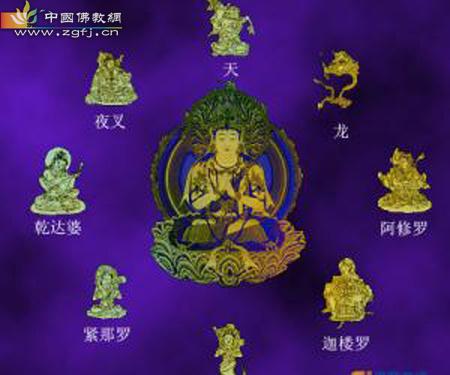
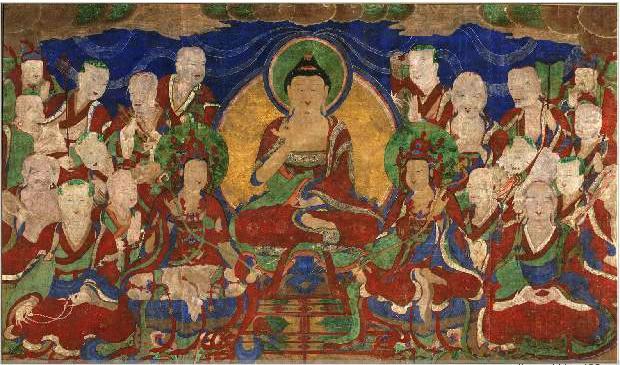
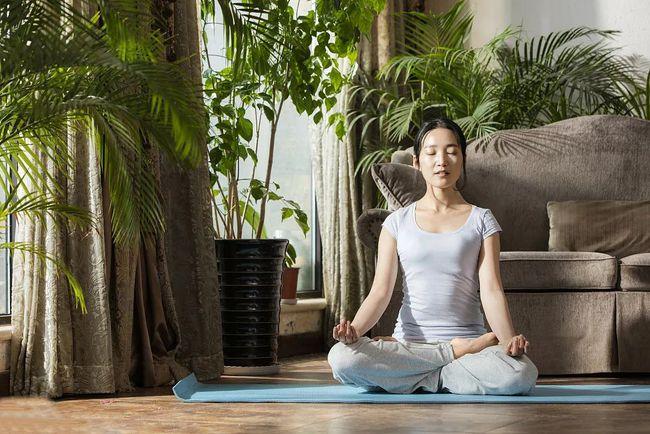
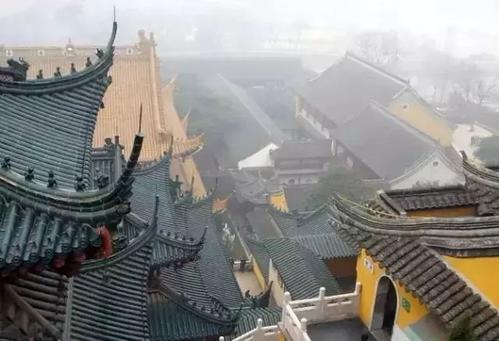
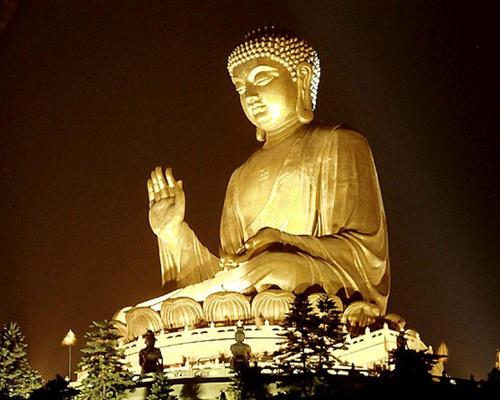

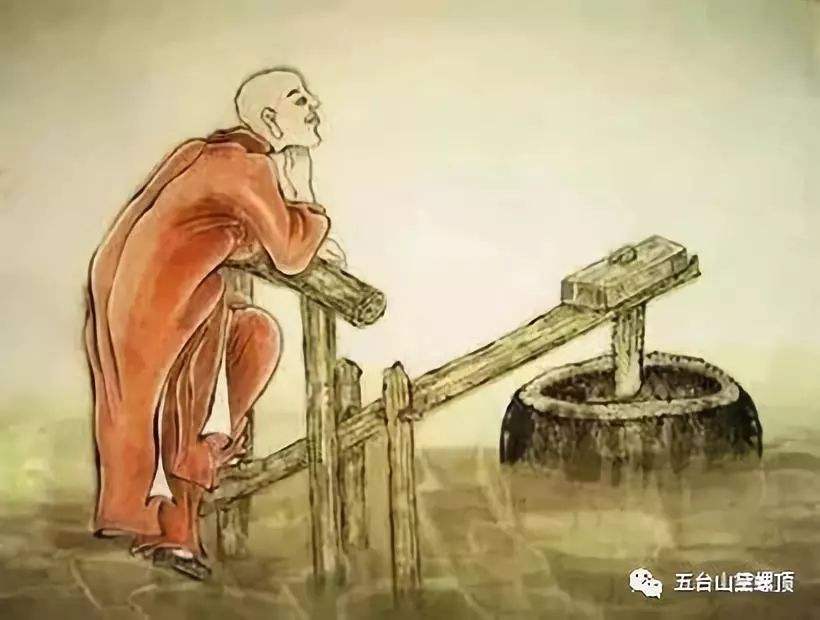
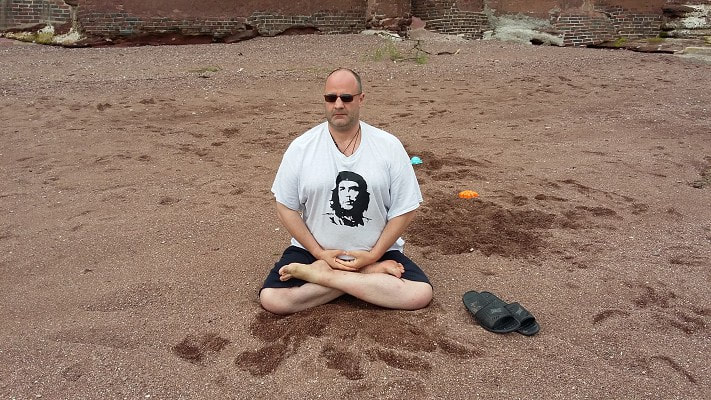
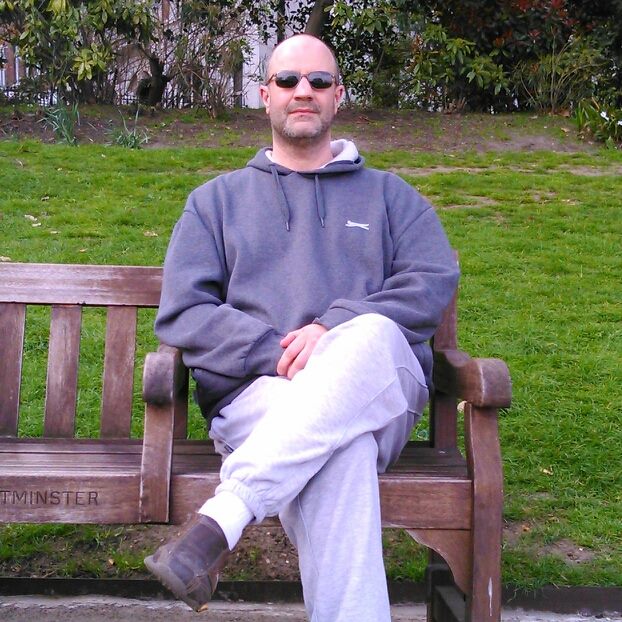
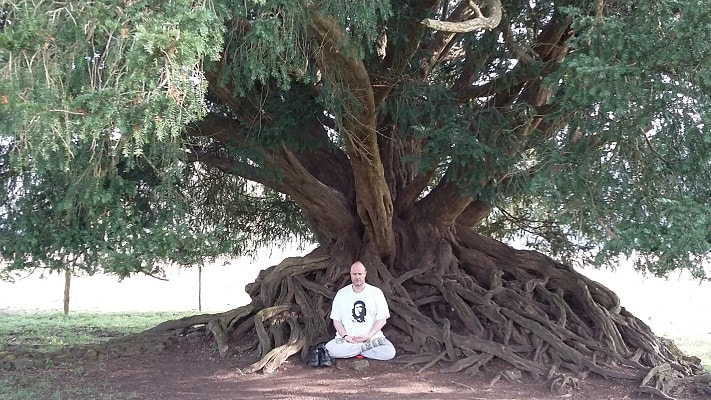
 RSS Feed
RSS Feed